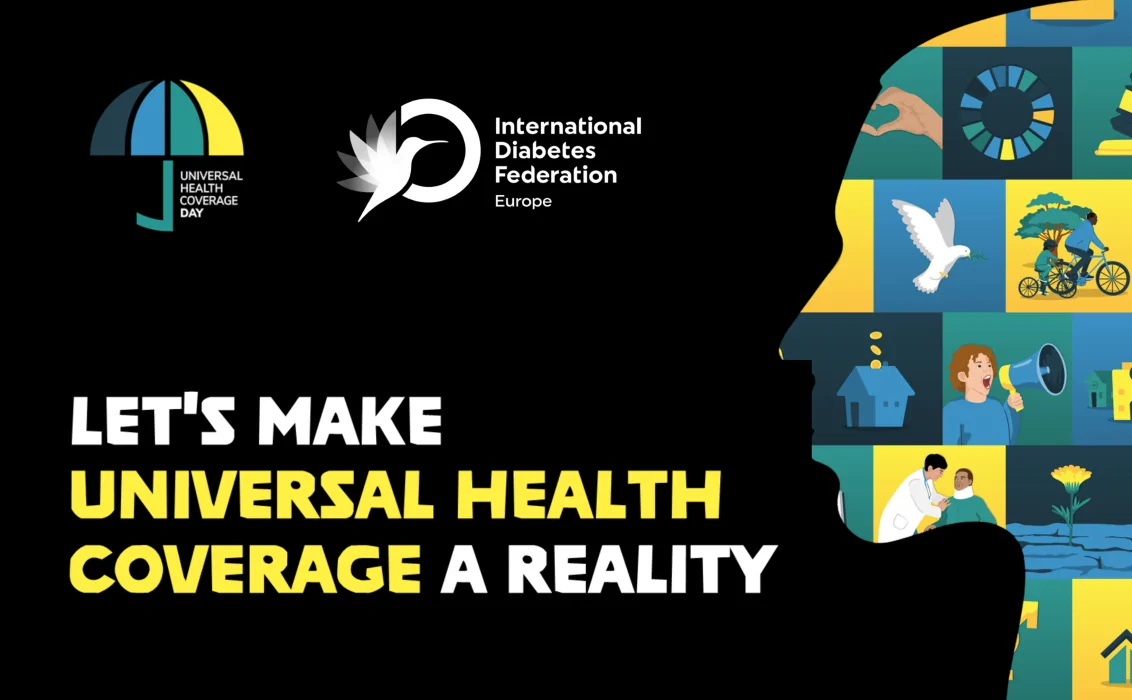“My choices and actions are not limited by type 1 diabetes”
With 60 million people with diabetes and 32 million more at risk of developing it, Europe is facing a major health pandemic. Today, it is estimated that 1 in 9 women over 25 have diabetes in the continent, and 1 in 7 births is affected by gestational diabetes, leading within 10 years after pregnancy to type 2 diabetes in 50% of all cases. In addition to their direct relations with diabetes, women are key agents in the adoption of healthy lifestyles which are crucial to prevent type 2 diabetes and also to maintain appropriate blood glucose levels and decrease the risk of debilitating complications. Furthermore, mothers are also often be the ones looking after the therapeutic and psychological aspects of a child with type 1 diabetes.
On the occasion of World Diabetes Day, IDF Europe decided to run a series of interviews of women having a direct relation with diabetes. Whether they have diabetes, have someone in their family living with the condition or they advocate at international level, they all have one thing in common: diabetes is at the centre of their daily life and they are all committed to fight for stronger rights and lesser discrimination.
Today, we spoke to IDF Europe Young Leader and staff exchange, Rachel Portelli from Malta, about living with diabetes as a teenager and how the condition shapes her as a woman.
Rachel, can you tell us a bit about yourself?
My name is Rachel and I live with type 1 diabetes. To be honest, this was not always my first response when being asked something about myself. But diabetes is with me 24 hours, 7 days a week, it has no time-off or vacation leave so I would be a hypocrite if I said that being the woman that I am today had nothing to do with my constant battle in managing my diabetes.
You were diagnosed at a young age. Do you have any memory of that period?
You are right, I was just three and a half years old, I do not remember the day of my diagnosis unlike my parents. In fact, they had started noticing several things about me – I was sleeping more, drinking more, wetting the bed, amongst other things. These are typical symptoms of type 1 diabetes but they did not link them with the condition at first. At the time, there was no awareness on diabetes as there is today, my parents did not even know that children can be diagnosed with diabetes. It was only when my father over-heard two men on the street saying how much people with diabetes drink that diabetes came into the radar.
To make matters worse, the first thing that the doctor who diagnosed me said was – “Look, once a diabetic, always a diabetic. Here is a prescription for the medication you need. You can pick them from the hospital’s pharmacy. After that, go home and tell your family doctor to contact me.”
They were chocked by my diagnosis and also by the way it was presented. I am extremely lucky to have generous and caring parents that were determined to give me the best normal life that they could. They did not want to let this diagnosis stop me and after the shock wore off, they did their best to raise awareness and help other families deal with such a diagnosis.
Growing up with a chronic condition requires a lot of organisation and determination. In your case, what has been the impact of diabetes in your youth?
As a young girl, diabetes was rarely my best friend. I saw diabetes as a burden and it was exhausting dealing with everyday teenage life and diabetes. For most teenagers, having friends and fitting in is very important. Living with diabetes and trying to fit in was not an easy task for me. Things got worse when I had an allergic reaction to a new insulin. I had a severe case of water retention which resulted in a lot of weight gain. My friends were all pretty and slim whereas I had people spreading rumours that I was expecting a child which only caused more anger and frustration towards diabetes. It affected my everyday life, whether it was in school, relationships or any other aspect, diabetes always seemed to invade.
Diabetes has grown up with me and although we had our fights, it was a main contributor to shaping the woman that I am today. I believe that everything happens for a reason and I am not ashamed of how diabetes affected my life as a youth. During that difficult time I learned to accept my condition. I became more responsible and aware of my health. It also gave me the determination and motivation to help others living with diabetes and support them in any challenges or difficulties they might be going through.
You mentioned that diabetes is a main contributor to shaping the woman you are. Today, How does he impact your life as a woman?
When you look at me you do not see diabetes, before anything else you see a person. Even though my diabetes may cause me some fear, I still have goals and dreams as a woman which I would like to achieve. My choices and actions should not be limited by type 1 diabetes. As a 24-year-old, I still have a future ahead of me, including employment opportunities. As a woman with diabetes I fear that I would have a greater disadvantage at being chosen for certain opportunities. Also, having gone through treatment for Diabetic Retinopathy I still fear other complications or risks that may arise later on as a woman. However, I do not let these fears stop me. On the contrary, they give me the drive to continue working, learning, and involving myself in different experiences.
You know, diabetes taught me to adjust all the time and that is what I am doing. I love to travel and be involved in different projects both locally and internationally. I will not let diabetes stand in the way of achieving and doing what I love. For example, I know that when I will want to have kids, it will be preferable to plan my pregnancy. I will adjust and do what is necessary but diabetes will not be an obstacle to my life as a woman and as a mother.
You mentioned your motivation to help others living with diabetes, and this is exactly what you are doing as an IDF Europe Young Leader. As an advocate for diabetes, what is your main concern and main fight in regard to woman and diabetes?
Diabetes is the 9th leading cause of death amongst women globally. Women living with type 1 diabetes have an increased risk of an early miscarriage or having a baby with malformations, women experience depression about twice as often as men1; eating disorders are probably more common among women with diabetes2, amongst other risks. I believe that there is not enough information and action taken regarding the care and treatment needed as well as the risks present as a woman living with diabetes.
During my years at University, I focused a number of assignments on diabetes and also focused my dissertation on how Type 1 diabetes impacts the family members from a social policy perspective. After this achievement, I knew that as a person living with this chronic illness, I can make a greater difference. I am usually a private person; however, I know that speaking up can help others know that they are not alone and support them throughout this journey. As a young advocate for diabetes, my main goal is to continue raising awareness at a local level and an international level. I would like to bring attention to how diabetes affects different people in different ways, such as how it affects women as individuals, as professionals, as mothers. A staggering number of 199 million women in the world live with diabetes today and I believe that together we can make a difference in the diabetes community.
1http://www.diabetes.org/living-with-diabetes/treatment-and-care/women/depression.html
2http://www.diabetes.org/living-with-diabetes/treatment-and-care/women/eating-disorders.html



